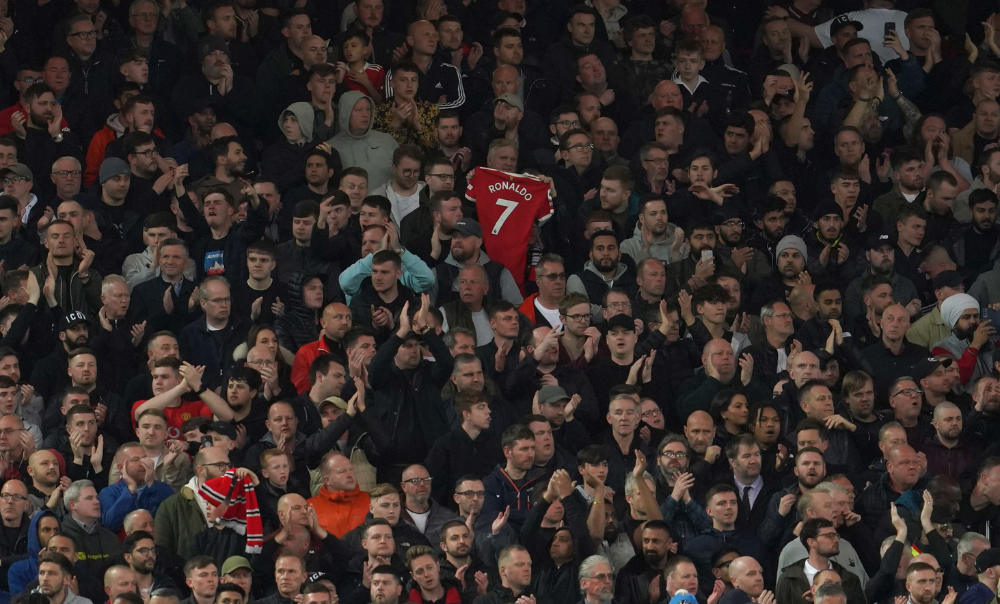
Blog | 22 May 2024
Tackling Sexual Offending In Football, A Seemingly Impossible Job
by Helen Race and Jessie Grant
Last week I went to the final recording of “Quickly Kevin, will he score?”, a podcast about 90s football that has lifted me through some challenging times. In a packed-out Palladium, I witnessed all that is good and great about football fandom; instant commonality and camaraderie, great humour, community, identity…so much more. It’s what the beautiful game could and should be.
This experience collided with my learning the uncomfortable truth that “seven out of 20 Premier League clubs have had players or bosses investigated by the police for sexual offences since 2020”, a shocking statistic that shows a third of all Premier League clubs are harbouring sexually violent perpetrators. The Premier League is a beacon of footballing brilliance, capturing the hearts of millions worldwide. However, the presence of sexual violence casts a shadow over its reputation and demands our urgent attention.
The Impact on Survivors
Survivors are generally disbelieved; if we were to hold onto how prevalent these devastating behaviours are, society would have a huge reckoning, and a whole lot of heartbreak to contend with. This general disbelief of survivors can be amplified and compounded if the perpetrator is someone we’d struggle to accept it would be – someone we look up to, someone who is integral to our team’s success, someone with status and power.
In most cases, possessing power not only lends itself to having the resources to refute claims and arguably, more opportunity to offend. It also provides the public with easy-to-understand narratives that discredit accusations and argue the perpetrator’s defence, like “They’re just saying it for the money/fame/attention.” However, when you scratch beneath the surface, it is easy to dispel these tropes when you consider the emotional turmoil high-profile survivors put themselves through to seek justice and challenge those with enabling protective structures that guard them. It also is worth noting that criminal cases do not seek damages and money is only exchanged as part of settlements outside of court.
There’s a real problem here we need to contend with, and with only 16-17% of survivors reporting to the police, particularly if the perpetrator has status, power and social currency; this may be the tip of the iceberg.

Accountability and Influence
Premier League players aren’t just athletes—they’re role models with significant influence. Their faces adorn the bedroom walls of young fans and their names are chanted adoringly across the globe. Their actions, both on and off the pitch, help shape societal norms and attitudes. When allegations of sexual violence come up and are subsequently met with denial or insufficient investigation, it sends a damaging message that such behaviour might be excused because of their celebrity status. This is particularly damaging during formative years when young people are shaping their understanding of relationships and consent. It’s crucial that we hold these players accountable for their actions. Their influence goes beyond sports, and the consequences of their behaviour can affect society.
It isn’t as though we don’t know about these accusations – many of them do make it into public awareness. Often, we see perpetrators supported and warmly embraced and defended by swathes of fans following an accusation. It is clear that the current accountability system in the Premier League and the wider footballing community is failing, clubs are seen to prioritise their image and financial concerns over justice for survivors.
We must also consider what message that sends to survivors, to perpetrators and everyone else. When we think about supporting male survivors, how are we meant to contend with the idea that so many young boys continue to filter through these systems that perpetuate a powerful hierarchy, where transgressions are proven to be left unchallenged and perpetrators are not just supported, but indeed celebrated?
What can be done?
LevelUp, The Three Hijabis and EVAW have done incredible work in this area, and we are dedicated to being a part of this culture change.
We want to see ALL sporting institutions…
- Conduct independent investigations into allegations of sexual violence that lead to suspension, fines, and legal consequences.
- Equip players with comprehensive training focused on consent, respect, and equality, delivered by experts within the field of sexual violence prevention.
- Establish robust support systems for survivors, including counselling and legal assistance.
- Foster a culture of respect, challenging misogyny and violence at all levels of the game.
It’s time to blow the whistle on sexual violence in football. It can be a beautiful game, that’s all we want, so we will continue to challenge this uglier side of it.